Alumni, scholars say rupture stemmed from radicalisation of students over the years, with process eventually meeting its match in national security law.
Billy Fung Jing-en was once the poster boy of radical student activism. The former student union leader of the University of Hong Kong clashed with the institution’s management over its hiring decisions and led protests against its governing council.
He fought against the council in 2015 over its controversial decision to reject the candidacy of a liberal professor, Johannes Chan Man-mun, for a key managerial post.
The union chief was called a liar and radical for disclosing confidential meeting details and twice storming closed-door council meetings, while most of its members dug in their heels against the student body.
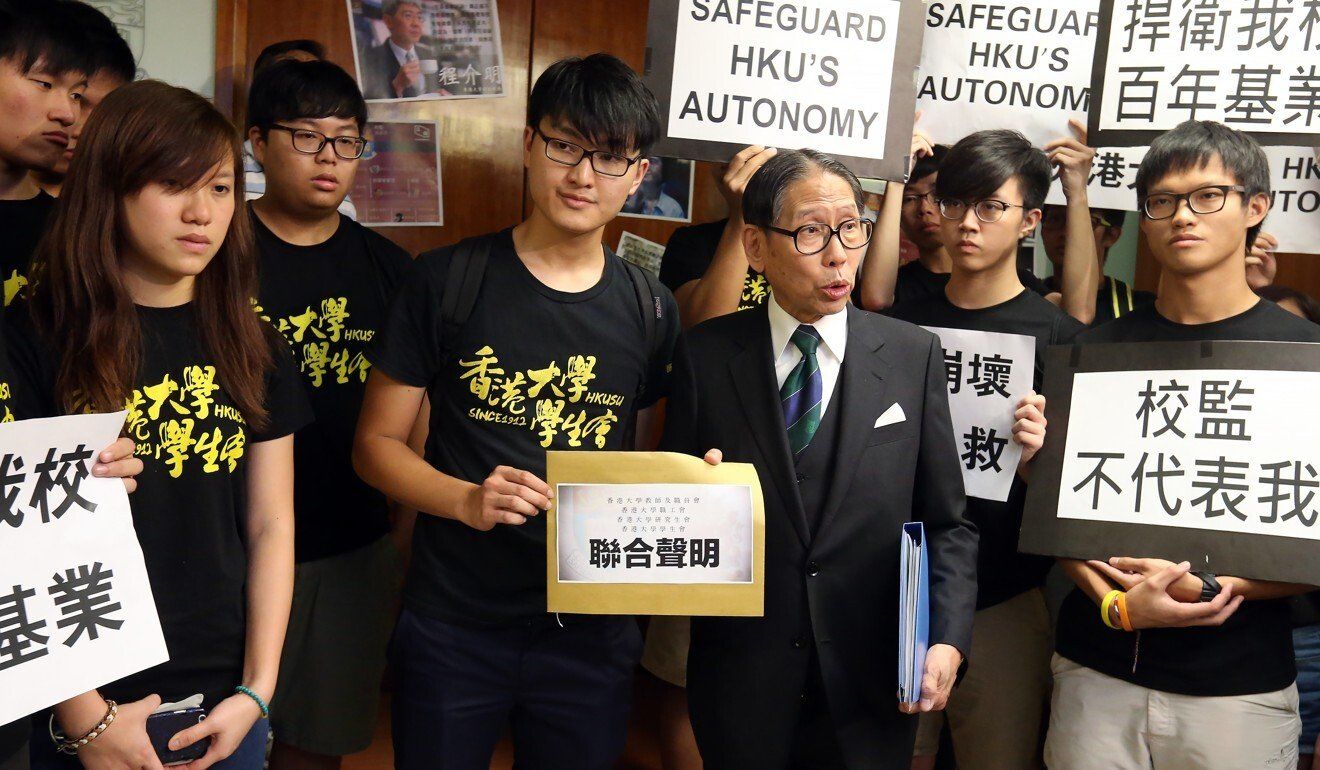 Billy Fung (centre) leads a student protest in 2015.
Billy Fung (centre) leads a student protest in 2015.
But the union he led survived his leadership. Fung himself later pleaded guilty in court for disorderly conduct, escaped jail but was ordered to do 240 hours of community service.
None of his actions, however, prompted the university to take punitive action against the union.
Fung said this was why he was disappointed to learn that HKU had severed ties last week with the student union after it made a public showing of support for the “sacrifice” of a man who stabbed a police officer in the back before killing himself.
“Just like in any past decades, the university had always respected the independent role of the union,” said the 27-year-old now working overseas after graduating four years ago. “Matters between students and the university were always solved internally, while student leaders were always welcomed to comment on social issues and the university would never judge.
“Never would I think of the school wanting to cut ties with me or the student union.”
In interviews with the Post, several alumni and previous HKU academics described the recent development as a clash of interests and responsibilities that appeared daunting in scope to resolve.
The disintegration of trust between the union and the university was long in the making, with the radicalisation of students over the years – including by the likes of Fung – finally meeting its match in the national security law, leading to the inevitable rupture in the relationship.
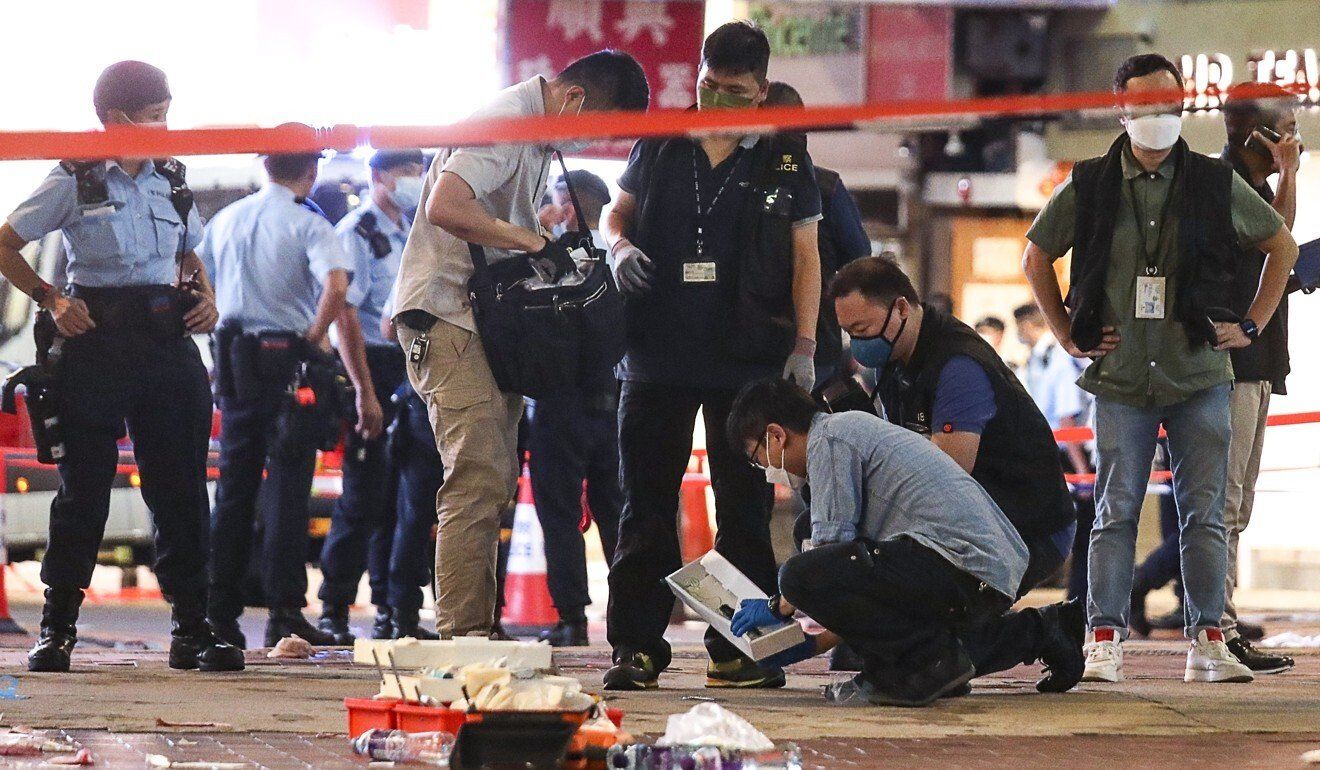 A police officer was stabbed on July 1 as the city marked the 24th anniversary of its return to Chinese rule.
A police officer was stabbed on July 1 as the city marked the 24th anniversary of its return to Chinese rule.
Yet, the implications could be wide-ranging. While management was obliged to enforce the new national security law, students insisted they were at the same time only trying to fulfil their historical role of conveying wider campus concerns and express their views on government policies that would fundamentally shape their careers and lives.
The disintegration of the long-standing partnership since the university founding in 1911 risked creating a vacuum leaving student welfare underserved, analysts said.
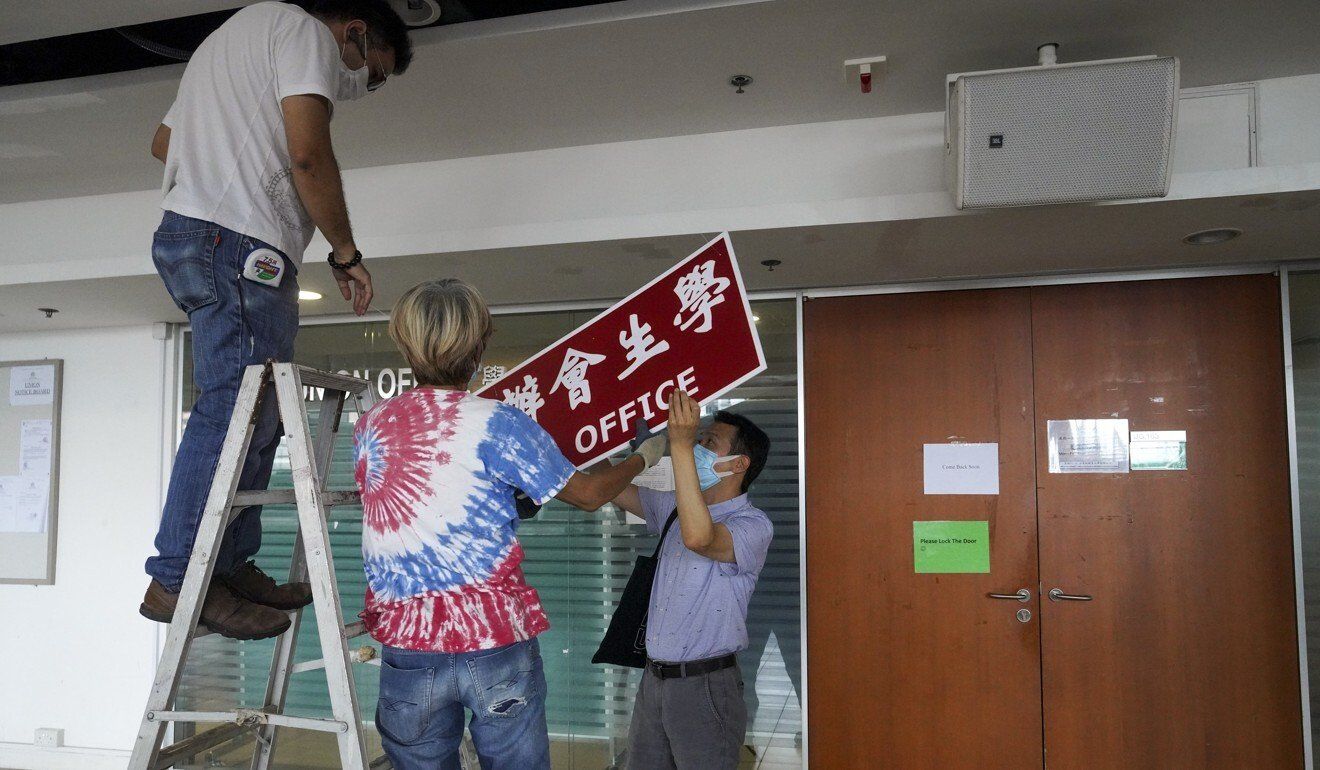 Workers remove a signboard of HKU’s student union.
Workers remove a signboard of HKU’s student union.
Worse, critics warned that others stepping up could be those keen to play to the interests of the government or Beijing rather than protect the free exchange of ideas at a university that held a critical role in training the next generation of drivers of innovation and technology – two areas the city’s leader singled out in her previous policy address as bedrocks of Hong Kong’s regional success.
The unravelling of the thread of trust between HKU management and students goes back to at least Fung’s time on campus, but the final strand snapped surprisingly fast. A day after 30 representatives of the student union council agreed on July 7 to express “deep sadness” over the death of the lone attacker who stabbed a constable on duty in Causeway Bay six days earlier, executive committee members apologised, resigned and withdrew the motion. By then, it was too late.
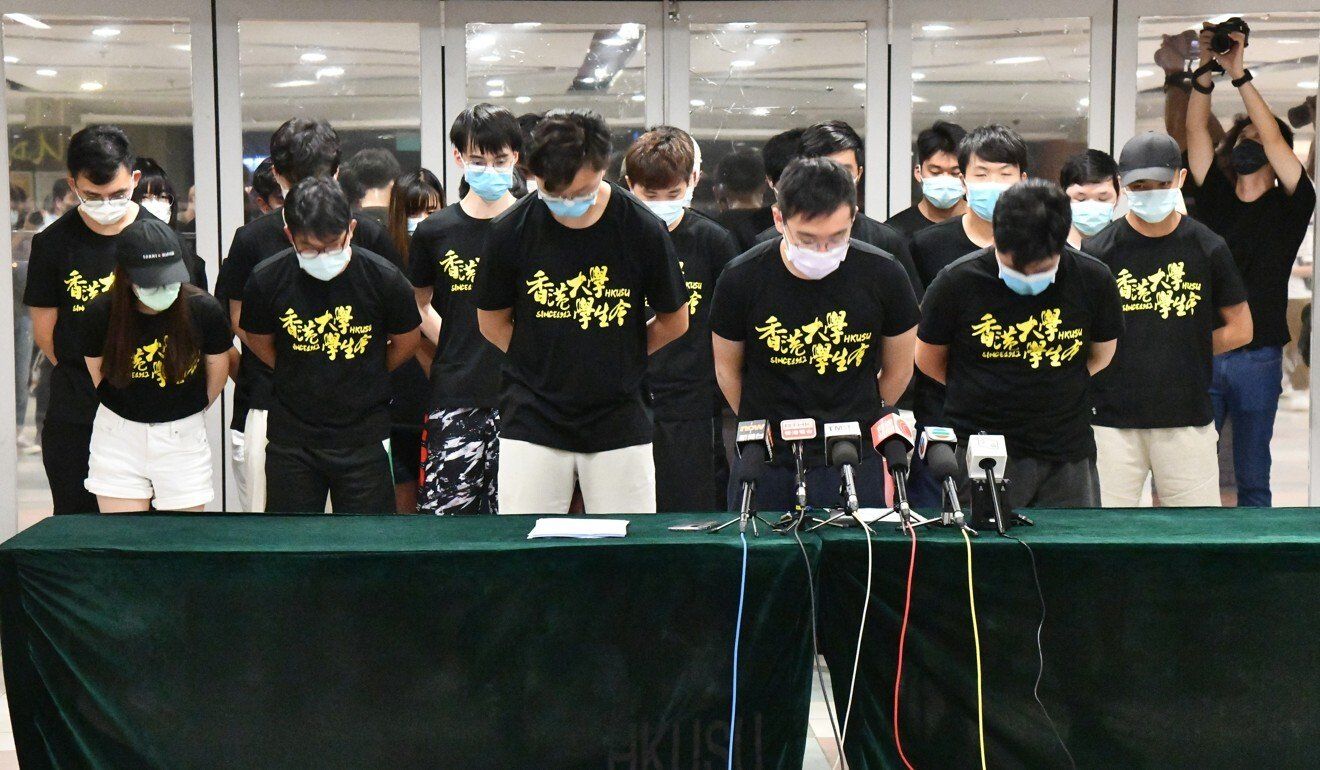 Student union leaders apologise and quit following a row over a motion passed by the body.
Student union leaders apologise and quit following a row over a motion passed by the body.
Announcing it no longer recognised the body, management issued a statement on Tuesday last week condemning the union’s “serious misconduct for blatantly whitewashing violence, challenging the moral bottom line of our society, and damaging the reputation and interests of the entire HKU community”.
Hours earlier, Hong Kong leader Carrie Lam Cheng Yuet-ngor, who is also chancellor of the university, demanded action against student leaders. Four days later, national security police raided the union’s office.
According to a force insider, detectives were investigating whether they had advocated or incited terrorism, a security law offence that carries a maximum sentence of 10 years in prison. Anyone suspected of involvement would be detained if they tried to leave Hong Kong, the source said.
In Fung’s view, HKU management had failed in one of its fundamental duties. “The university, apparently, is unable to uphold its neutrality, nor to serve as a barrier between authorities and students so that we can express opinions freely,” he said. “That was disappointing.”
The criticism that university executives acted wrongly was shared by Ray Yep Kin-man, who was vice-president of the student union in 1985. He argued they had taken a drastic step without first discussing their concerns with the university’s council and senate or consulting the convocation, a statutory body that automatically enrols all graduates and teachers.
“The student union council should be able to defend its judgment to pass the motion, but it never had the opportunity,” Yep said. “This is not what we expect in a normal society. I am not saying the actions of the body are justifiable, but the response of the university management is disproportionate.”
But not everyone shared that assessment. Andrew Fung Ho-keung, who was editor-in-chief of the Undergrad campus magazine in 1968 – under HKU’s student union – said a bottom line had always existed when students exercised their freedom of speech.
He recalled that the magazine published an article that year expressing student leaders’ views on the city’s autonomy. The governor at the time, David Trench, responded by contributing an article for publication titled “The Basic Nature of Government” that explained his approach to leading Hong Kong.
While the city leaders of that era might have been more accommodating of dissenting voices, the students were also more responsible in handling their role, said Fung, also a former convocation deputy chairman and who now leads the Hong Kong Policy Research Institute think tank.
“University management has been very tolerant of some radical actions by student union leaders in recent years, but it seems students did not appreciate that and have kept on crossing the line, especially the moral bottom line this time,” he added.
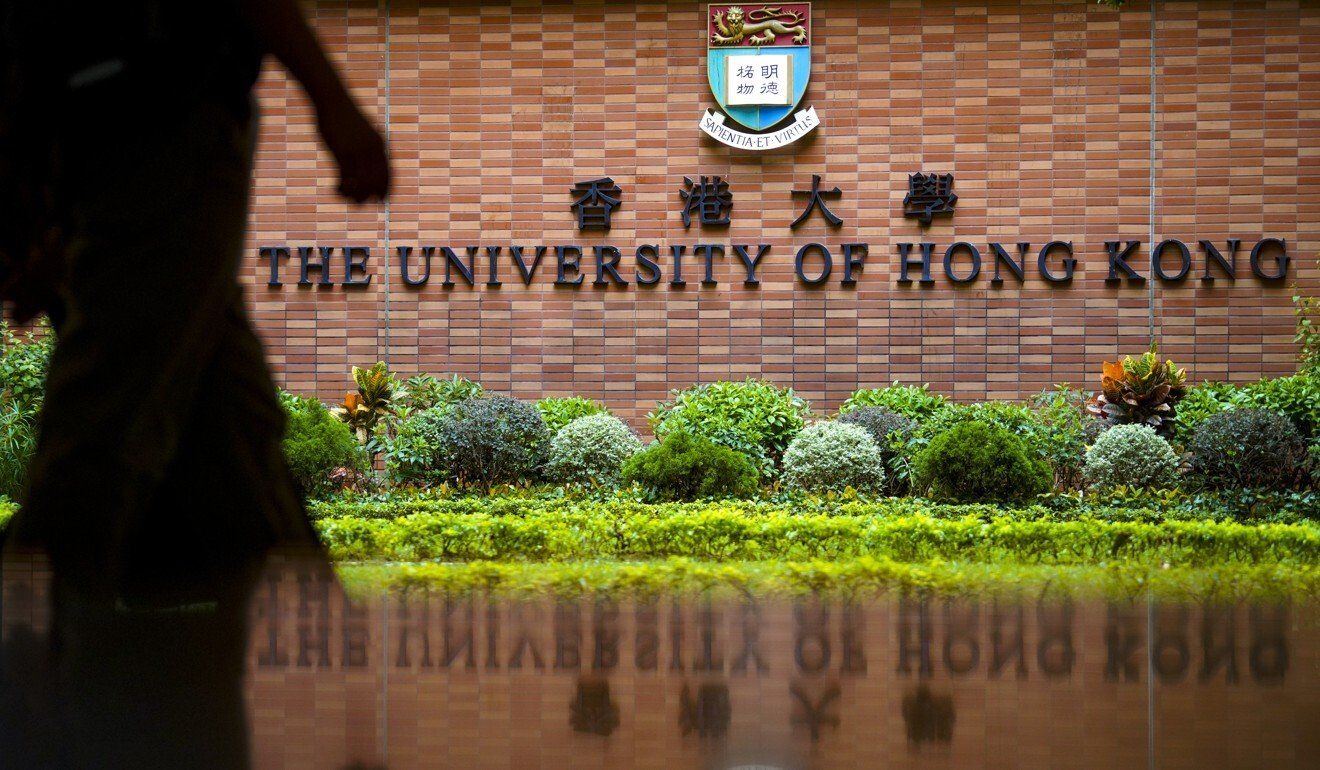 HKU’s relationship with its student union was more cordial in the past.
HKU’s relationship with its student union was more cordial in the past. ‘We cannot ignore the new law’
Student bodies in Hong Kong are relatively autonomous organisations, registered as societies with police, while schools highly value students’ activism in civic affairs.
They were active in fighting for social justice since the early 1970s – from spearheading a mass rally condemning the colonial government for failing to tackle corruption, to striving hard to make the Chinese language one of Hong Kong’s official tongues and defending China’s sovereignty over the disputed Diaoyu Islands.
But unlike the momentum in recent years, student leaders back in those days were sometimes in support of the Chinese government.
The HKU and Chinese University (CUHK) student unions were the first groups to back China’s resumption of sovereignty over Hong Kong, expressing their support well before the Sino-British Joint Declaration was signed in late 1984 by writing to then premier Zhao Ziyang.
Beijing treasured their support, as most of the city’s business and professional elite had reservations about the central government’s ability to maintain Hong Kong’s prosperity after 1997. Zhao, a key reformer, replied that it was “only right and proper” to adopt a democratic system in the city after 1997.
The cordial relationship only ended abruptly when the central government cracked down on student protesters at Beijing’s Tiananmen Square
on June 4, 1989. The bloody suppression drew condemnation from the two unions.
Over the past decade, student unions at the city’s universities once again have grown increasingly vocal over social and political issues, including the push for greater democratic reform.
Student leaders played a high-profile role in the Occupy protests that paralysed parts of the city for 79 days in 2014, in a bid to pressure the government into allowing universal suffrage for the election of the city’s leader.
Many were also caught up in the push for Hong Kong nativism, with several accused of campaigning for the city’s self-determination, if not outright independence, from China.
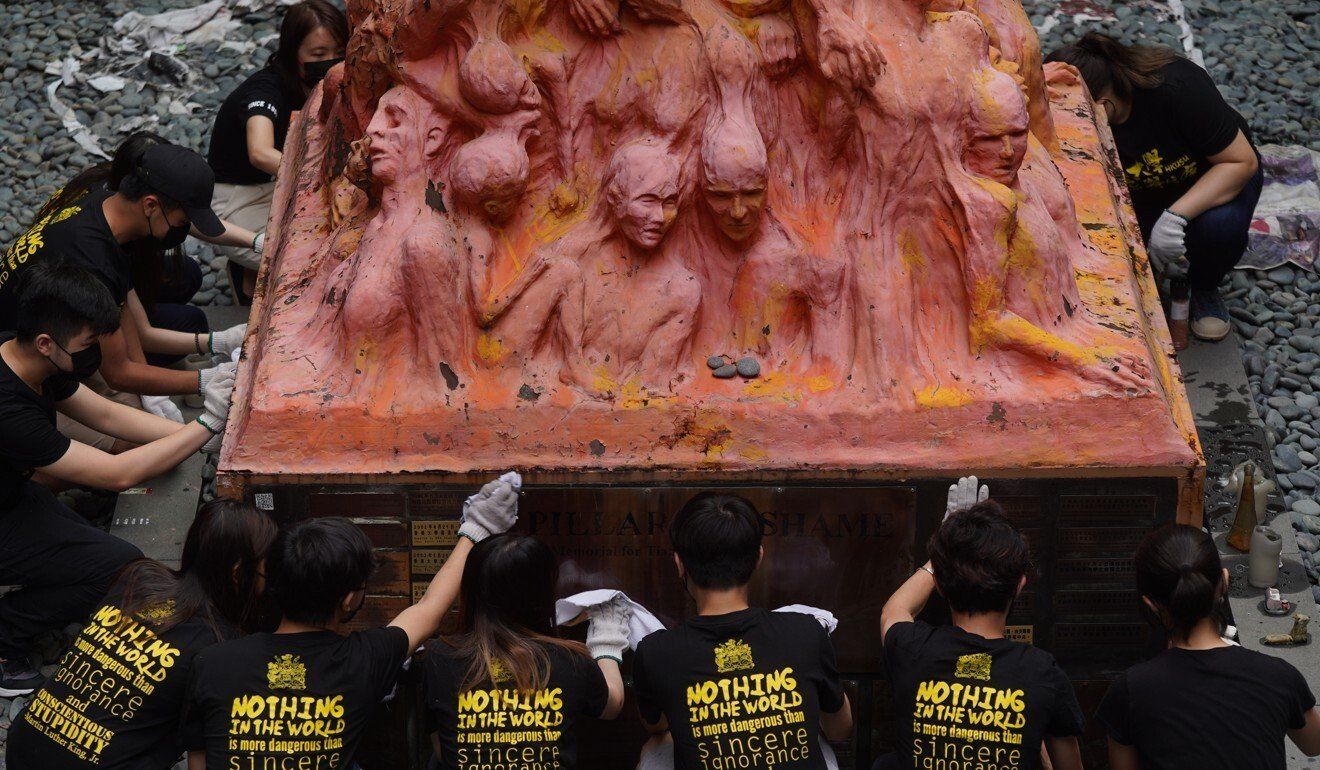 Students clean the Pillar of Shame sculpture at HKU. While student
activism was in the past welcomed on campus, ties between management and
the union body have ruptured
Students clean the Pillar of Shame sculpture at HKU. While student
activism was in the past welcomed on campus, ties between management and
the union body have ruptured
The unions’ fundamental position in the opposition camp was solidified during the anti-government protests that broke out in 2019 over an unpopular extradition bill that would have sent fugitives to mainland China.
Student union leaders were at the forefront when the demonstrations spilled over into campuses that were turned into bunkers for radicals who handmade an arsenal of weapons, including petrol bombs and rudimentary catapults that they aimed at phalanxes of riot police officers.
In the aftermath of the violence and following the introduction of the security law mandating its scope be taught in all schools, five of Hong Kong’s eight public universities stopped collecting student union fees – HKU, Lingnan University, CUHK, Polytechnic University and City University.
Such fees at these institutions used to be mandatory for students in exchange for the unions advocating for their welfare, while universities offered administrative help as a gesture of recognition.
CUHK cut ties with its student union in February over national security grounds, after some representatives published an 80-page manifesto that claimed the new law infringed upon basic human rights and freedoms. They also called the legislation a disgrace to Hongkongers’ dignity.
But such activism by the student unions belies the fact that many of their peers have already been staying away from campus politics. At least five of the eight public universities have been without a popularly elected student union as arrests of leaders over the past year deterred others from joining such bodies.
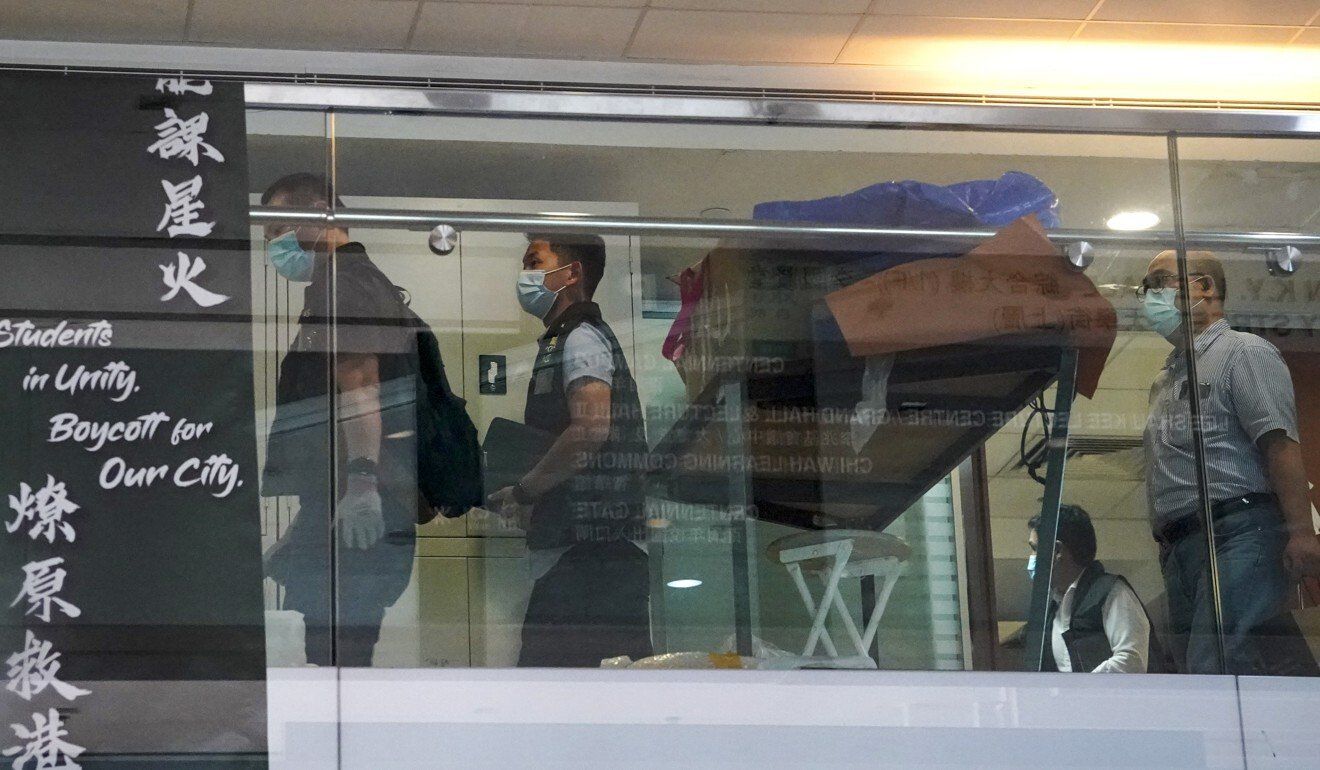 National security police raid the student union office at HKU.
National security police raid the student union office at HKU.
Lau Siu-kai, vice-president of semi-official think tank the Chinese Association of Hong Kong and Macau Studies, said compared with the past, student unions these days failed to gain massive support from their peers as they were too radical, while direct intervention by police through arrests and investigations under the security law would further discourage student movements.
“[In the past] police entry to campuses was seen as taboo, and many students would fight back,” he said, adding that this was now not the case. “Obviously, we are heading towards the end of student activism.”
Professor John Burns, a politics and public administration emeritus professor at HKU, blamed the breakdown of relations between universities and campus unions on the introduction of the law and the inability of student leaders to accurately gauge the current political climate.
“It seems that student union leaders failed to recognise this new situation or refused to adapt to it,” he said. “Harbouring people who may be breaking the law puts the university in jeopardy.”
But Burns also argued unions performed a valuable function in university governance as they sat on important committees that ensured students provided perspective sometimes overlooked by university managers and civic leaders.
“The recent raids make serving in a student union executive [body] high risk,” he said. “If students withdraw or shun our autonomous unions, the empty space will be filled by the Chinese Communist Party in Hong Kong based on its understanding of the appropriate role for university student unions.”
An HKU executive, who preferred to stay anonymous due to the sensitivity of the matter, denied management was acting abruptly, adding it was difficult for executives to ignore the security law.
“We have communicated with the new union since May, and we got an impression that unlike the former union that stepped down in April – which had accused the school of ‘bending over to the wolves of tyranny’ – the new one would only serve as a welfare union,” the staff member said.
According to the insider, the student council’s motion came as a surprise and their wilful act of defiance became even more intractable when national security police started to investigate, as it “could no longer remain as an internal matter”.
The source noted that in 2015 then chief executive Leung Chun-ying accused Undergrad magazine of “advocating independence” and “putting forward fallacies” in a book it published called Hong Kong Nationalism.
“At that time, there was no security law, and the school could still treat the matter as being about political conflicts only,” the insider said. “We are facing a different world now, where many school affairs, ranging from motions to publications, or some internal discussions, will draw attention from society or even security authorities ... The university cannot simply ignore the discussions.”
A council filled with outsiders?
The isolation of HKU’s student council follows on the back of a report published by Alex Chow Yong-kang, an activist who was vice-president of the body in 2014, on the background of all 24 members of the university’s top body. The report claimed that 15 had direct or indirect ties with the Communist Party or the Hong Kong government and also called on the United States to take action against the individuals and the university. The claims certainly did not help the axed union rescue its tattered standing with the authorities.
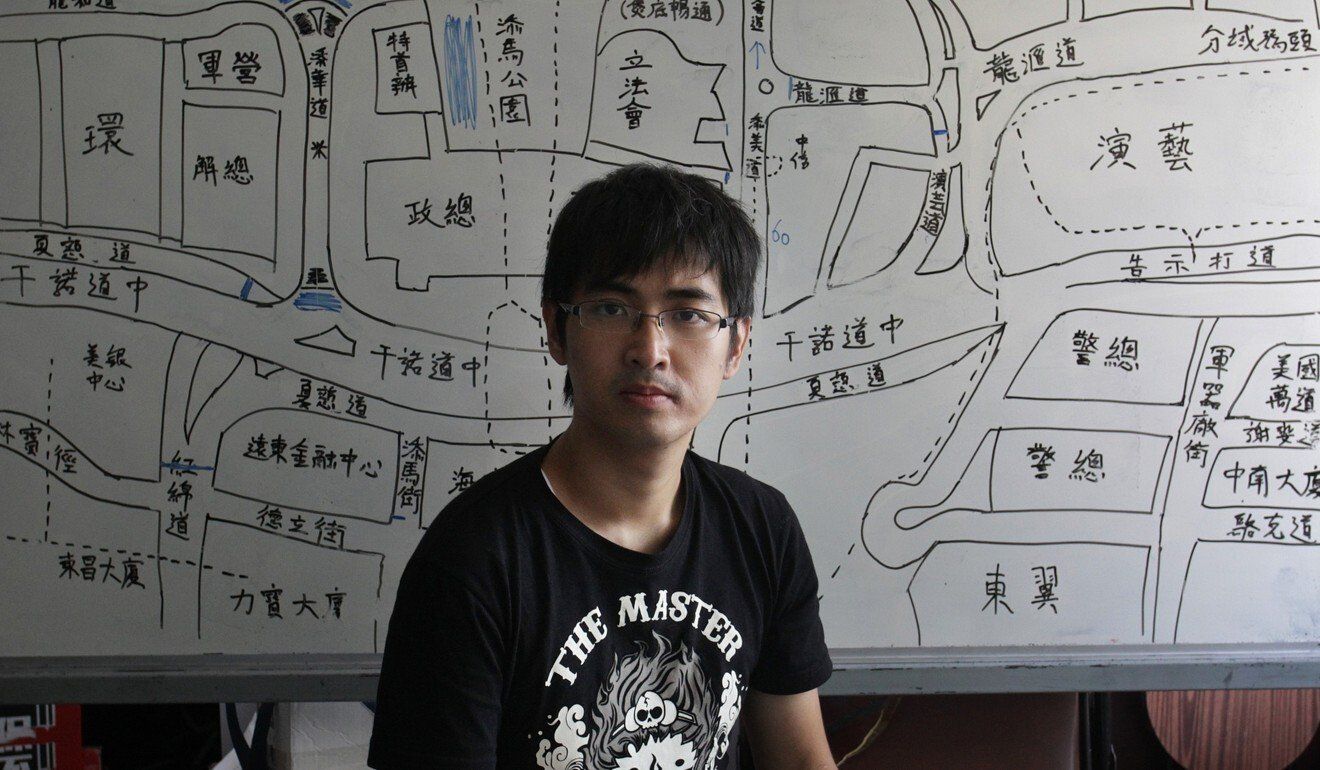 Activist Alex Chow was vice-president of HKU’s student union in 2014.
Activist Alex Chow was vice-president of HKU’s student union in 2014.
Only seven had been elected from among teachers, staff and students. Twelve other members were appointed by the chancellor – the chief executive – and the university’s court.
“It was just like any other sector that got penetrated,” said Chow, a 30-year-old graduate who now lives in the US. “The barriers to academic freedom can be very fragile.”
Chow became well known after he took part in the groundbreaking face-to-face talks between top officials and activists during the Occupy movement. He said student unions had sustained a balanced and cordial relationship with the university.
“The university at that time still upheld co-governance between university and student leaders, while the union could run independently and the school will treat us as partners,” he recalled.
He noted that pro-establishment figure Arthur Li Kwok-cheung, who was appointed as council chairman in 2016, was the first to publicly welcome a national security investigation into the student body, which Li described as “basically supporting violence and the attack on July 1”.
Former council member Professor Timothy O’Leary, who left HKU three years ago and now leads the school of humanities and languages at the University of New South Wales in Sydney, agreed elected members were now likely to have less of an impact.
“There is no doubt that council members who are directly appointed by the chief executive have a different perspective on university matters and are more likely to reflect the views of the government,” he said, adding that since Occupy the level of tolerance and patience with student activists, especially that shown by appointed members, had grown weaker.
The philosophy scholar stepped into the spotlight in 2015 when he co-led a silent march on the campus to protest against the decision not to appoint Johannes Chan as pro-vice-chancellor.
Following the rally, O’Leary co-founded the now-defunct concern group HKU Vigilance to advocate for academic freedom and was elected to the school council later that year.
“The campus protest would most certainly not be allowed today; but also, it is highly unlikely that staff members would feel safe enough to take part in it today, even if it were permitted,” he said. “The combination of growing police actions, with the natural inclination towards self-protection through self-censorship, means visible protest is highly unlikely today.”
But Tai Keen-man, a current council member and former deputy director of broadcasting in RTHK, said detractors chose to ignore the fact that the constitution and composition of the university council remained unchanged.
“People will come and go, just like how our society works. I did not see a problem [with the appointments],” he said. “And when there is a crisis, it is also hard for the school or the council to simply avoid commenting on or ignoring the problems.”
‘Two to tango’
It remains unclear how the HKU battle will end. It is understood the university council will have a meeting on July 27 to discuss the matter. But according to Billy Fung, the university could do much more for its students.
He recalled an incident in 2015 that involved himself and then university vice-chancellor Peter Mathieson.
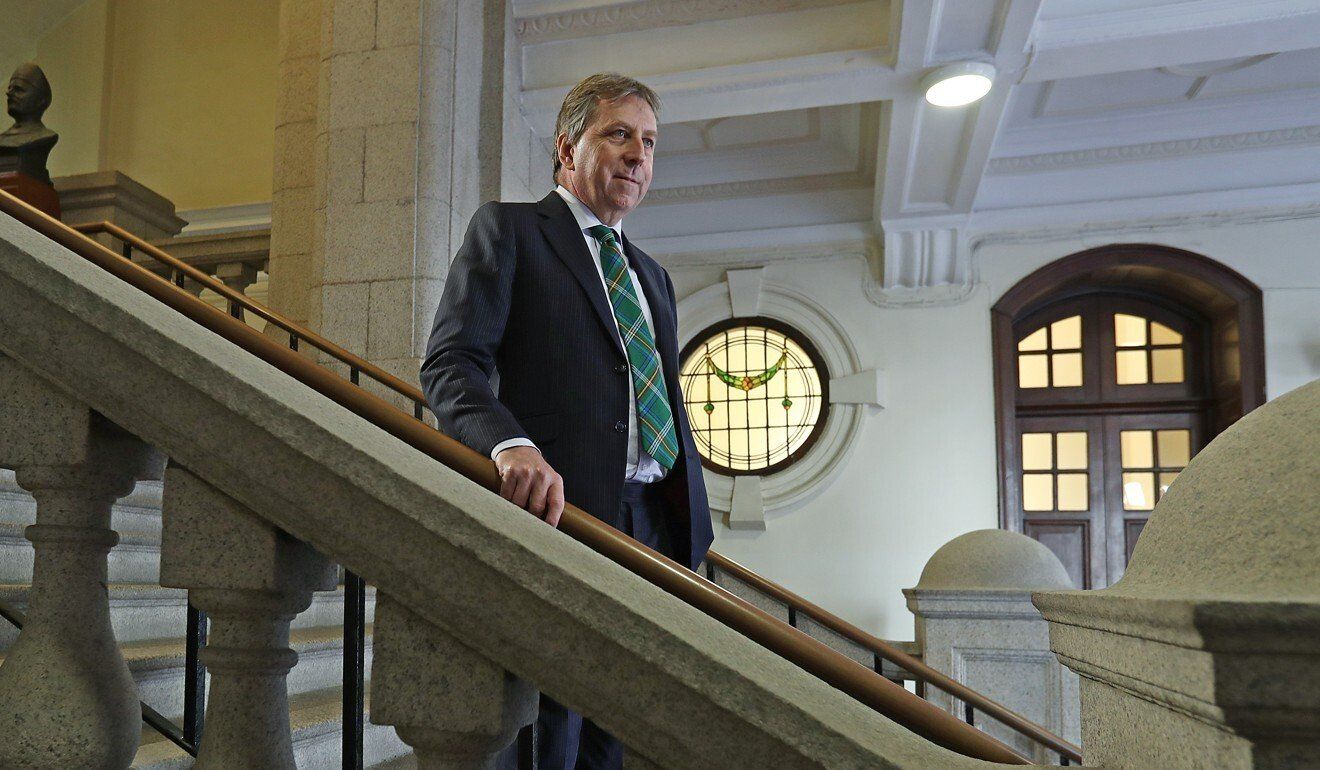 Former HKU chief Peter Mathieson.
Former HKU chief Peter Mathieson.
“We often disagreed with each other’s views, but he would always message and meet me to understand how students think,” he said. “He even helped me write a mitigation letter when I was being sued for disorderly conduct in public places after we crashed the meeting.
“I would say the university used to take a much more open-minded and tolerant attitude regarding students’ actions.”
The HKU source pointed to an experience during the 2019 protests when student union leaders took advice from professors and school representatives over how the university could protect itself from physical intrusion.
“That may be the reason HKU suffered much fewer disturbances compared with other universities that were hard-hit, such CUHK and Polytechnic University, because student leaders by that time believed the campus should only serve as a learning place,” the source said. “Students’ attitude also matters, when it comes to how the university should handle the matter.
“It always takes two to tango,” the insider added.















